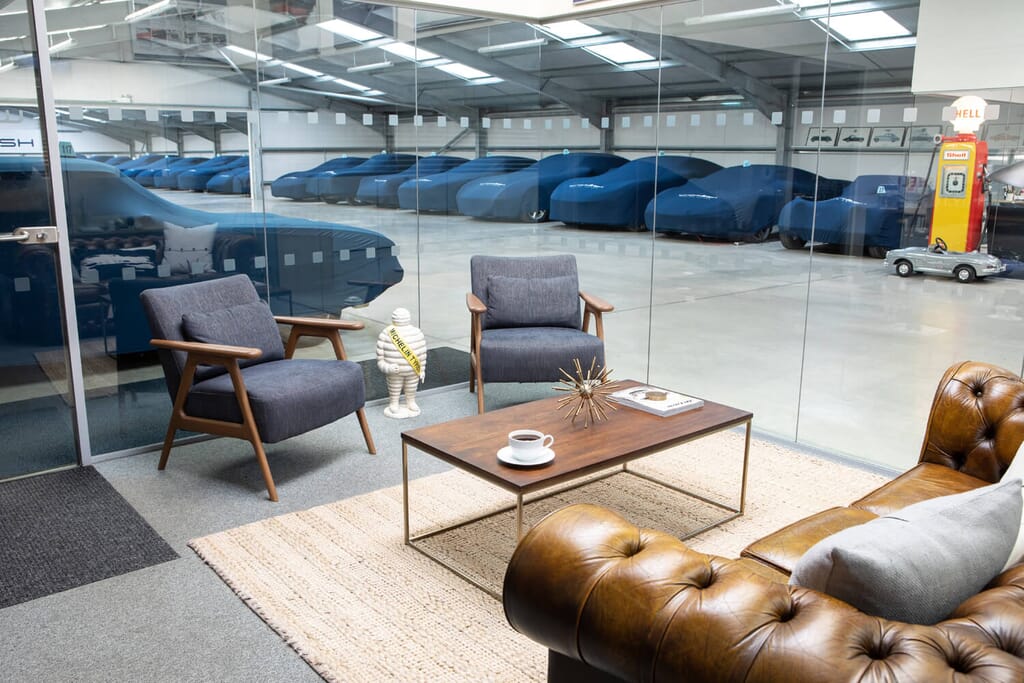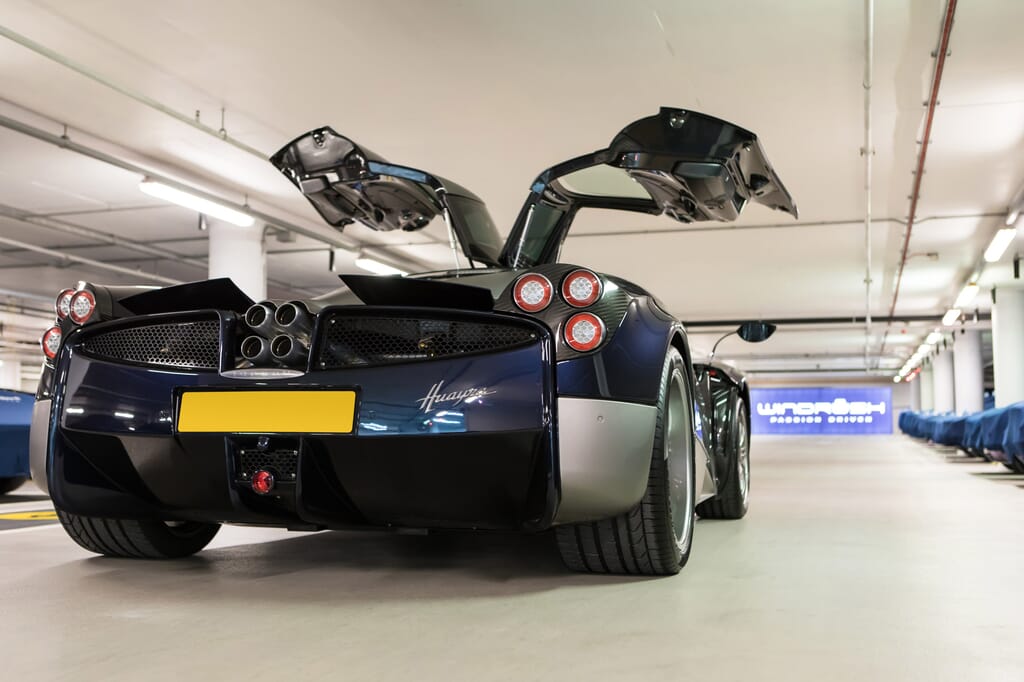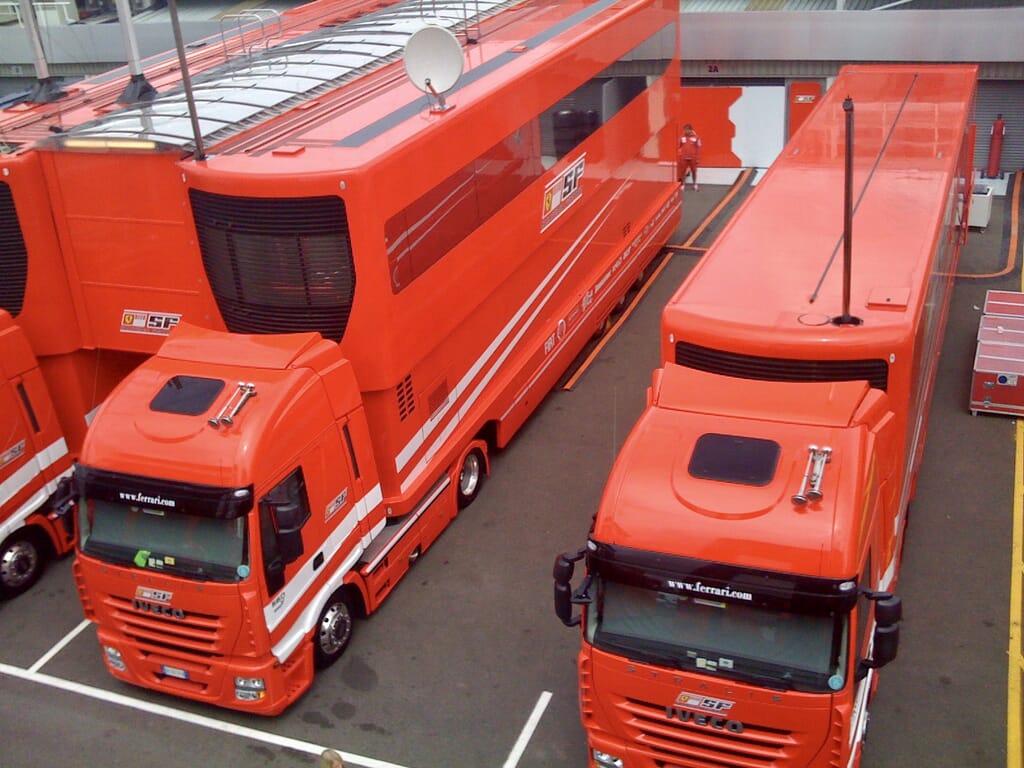
As the Formula 1 season prepares to roar back to life this weekend, the world’s attention turns once again to the pinnacle of motorsport engineering and performance. Yet behind the spectacle of race day lies an unseen world of precision, dedication, and uncompromising standards that few ever glimpse.
It’s this hidden world that has shaped Windrush Car Storage into the UK’s most respected automotive storage solution over its 20-year history. Founded by Tim Earnshaw, whose years managing logistics for the Scuderia Ferrari Marlboro F1 team instilled in him an almost superhuman attention to detail, Windrush doesn’t just store cars – it elevates the entire concept of vehicle care, where nothing short of perfection is acceptable.
When "Ready" Isn't Ready Enough
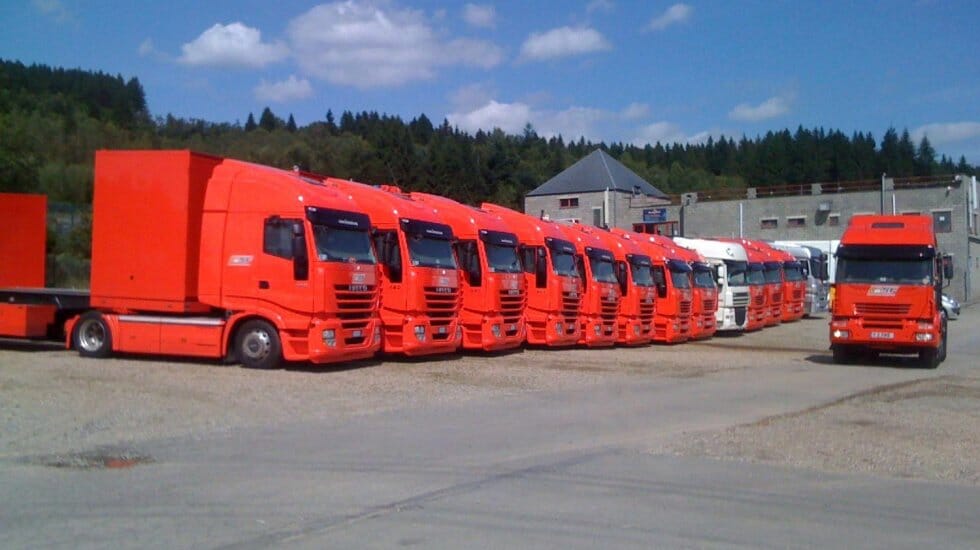
Early in his Formula 1 career with Ferrari, Tim recalls a pivotal moment that defined his understanding of true excellence. Standing in a hangar surrounded by the team’s fleet of immaculate transport vehicles, Tim’s boss asked a seemingly straightforward question: “Are these ready to go?”
Looking at the pristine line of trucks and transporters, Tim confidently answered, “Yes.”
His boss’s response was immediate and unforgettable: “No, they’re not.”
Despite appearing spotless to the untrained eye, each vehicle still required another thorough cleaning. This moment served as Tim’s introduction to the stratospheric standards of Formula 1 – where “good enough” simply doesn’t exist, and where even invisible imperfections are unacceptable.
“That was my reality check,” Tim explains. “In F1, there’s no such thing as ‘clean enough’ or ‘organized enough.’ There’s only perfect, and then there’s unacceptable. That mindset stays with you forever.”
From Paddock to Storage Facility
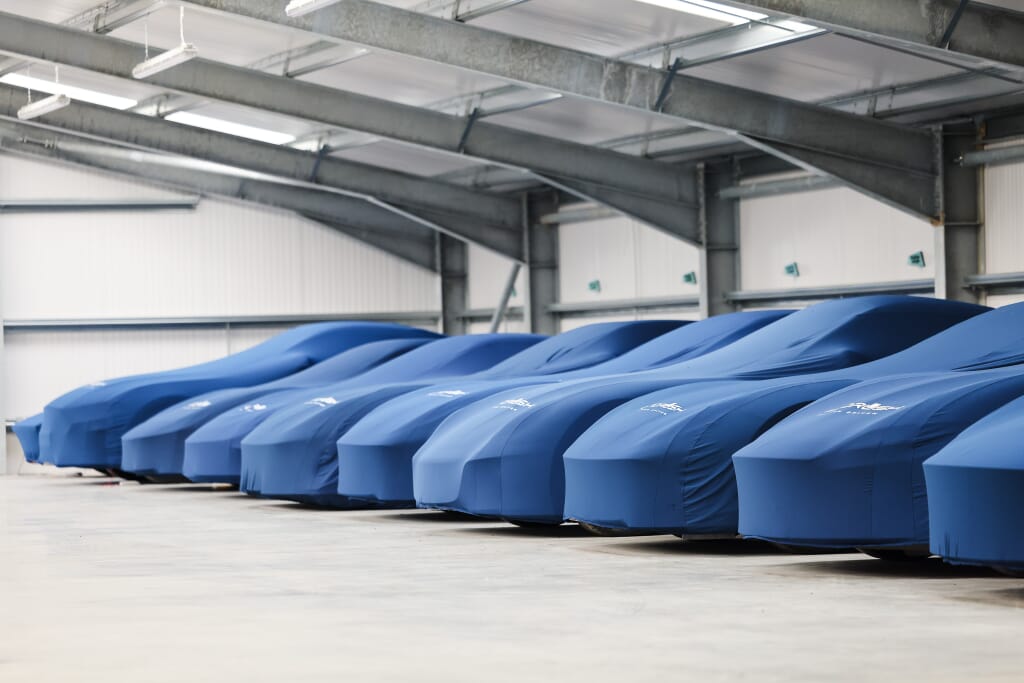
This Formula 1 philosophy now permeates every aspect of Windrush’s operations. At their facilities in the Cotswolds and central London, cars aren’t merely parked – they’re cared for with the same precision that keeps an F1 operation running flawlessly across continents.
“Moving the F1 circus from country to country required military-grade planning,” Tim explains. “A high-ranking Formula 1 team transports everything from the cars themselves to hospitality units, Michelin-level kitchens, power generators, computer systems, and fresh food – all while working against impossible deadlines with zero margin for error.”
This experience manifests today in how Windrush approaches automotive care. Each vehicle, regardless of value or rarity, receives identical treatment – from the thorough induction process to the climate-controlled environment, regular maintenance checks, to ensure mechanical health during long-term storage.
The Invisible Standard
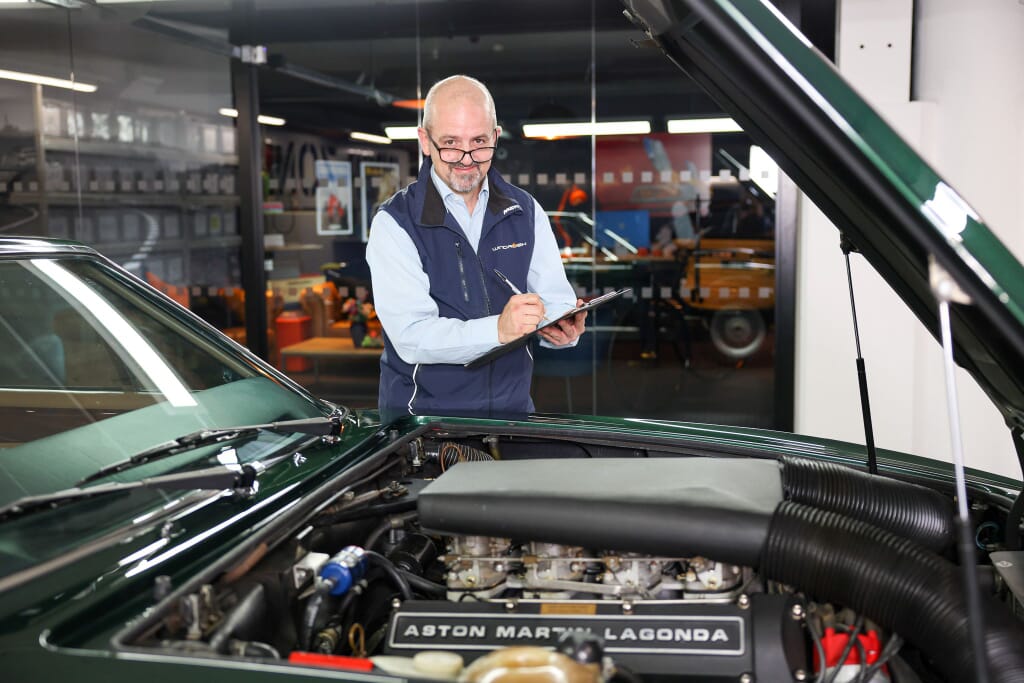
What truly sets Windrush apart is their commitment to what Tim calls “the invisible standard” – the attention paid to areas and details that clients will never see.
“In Formula 1, we’d strip and service generators even if they hadn’t been used,” Tim notes. “At Windrush, we clean underneath cars with the same care as their visible surfaces. We inspect door jambs and trunk seals with the same attention as the paintwork. Nothing is left to chance.”
This philosophy extends to the facilities themselves. Visit either Windrush location and you’ll find floors clean enough for surgical procedures, identical blue covers protecting each vehicle, and staff moving with purposeful precision through temperature-controlled rooms. The result of this is that Windrush has earned the highly coveted ISO9001 certification, awarded for its quality management principles, customer focus and drive for continual improvement.
Beyond Storage
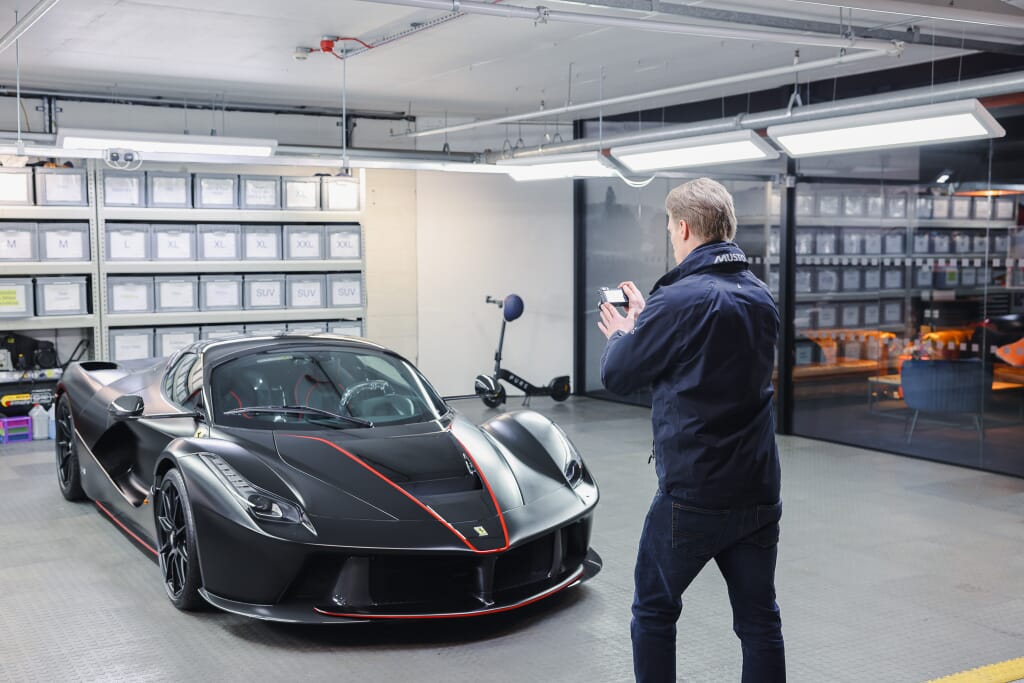
What began as vehicle storage has evolved into a comprehensive ownership experience. Windrush doesn’t just mind cars – they enhance the entire ownership journey.
“Our clients aren’t simply looking for somewhere to keep their vehicles,” Tim explains. “They’re entrusting us with prized possessions that represent significant emotional and financial investments. Our job is to exceed expectations at every turn.”
This means sending owners regular photographs of their cars, offering collection and delivery services, providing detailed condition reports, and ensuring each vehicle is presented in showroom condition whenever an owner wishes to use it.
One client, upon collecting his classic Ferrari after six months in storage, found it not only in perfect running condition but cleaner than when he’d left it – including areas he’d never managed to properly detail himself. “That’s the F1 standard in action,” Tim smiles. “Not meeting expectations, but redefining them entirely.”
The Windrush Promise
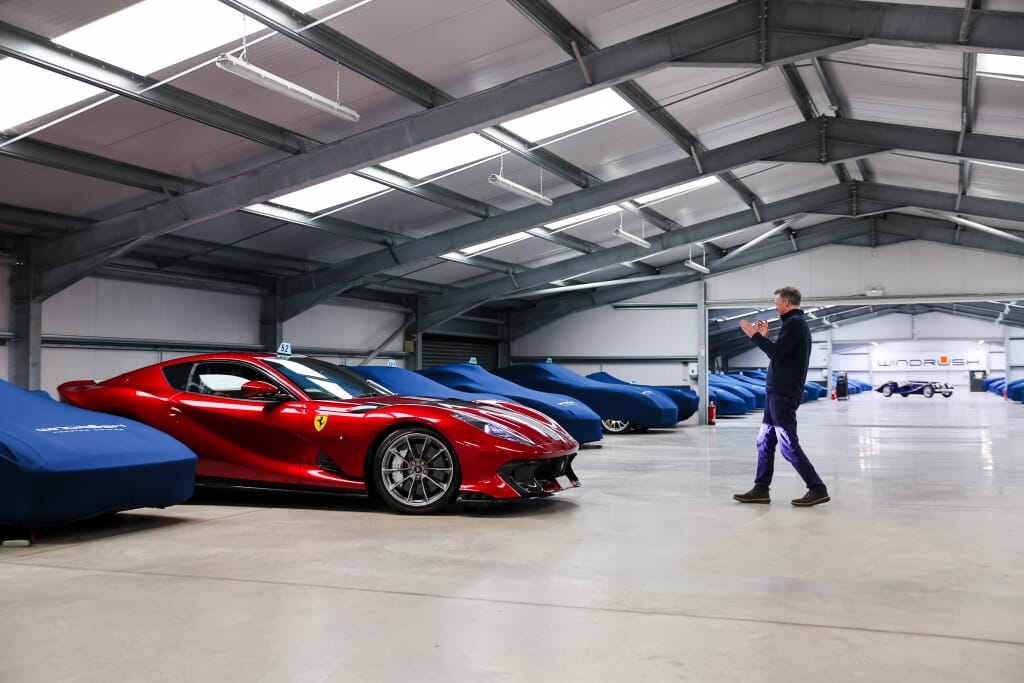
As Windrush enters its third decade, the company’s Formula 1 DNA remains its defining characteristic. While competitors may offer similar services on paper, none match the obsessive attention to detail and service mindset that Tim’s team delivers.
“In Formula 1, there’s no second place in logistics – either everything works perfectly, or you’ve failed,” Tim concludes. “At Windrush, we apply that same binary standard. There’s no middle ground between excellence and disappointment. Our clients deserve nothing less than perfection.”
It’s this uncompromising philosophy that explains why Windrush doesn’t just store some of Britain’s most valuable automotive treasures – they’ve become the trusted guardian of their clients’ prized possessions and the standard by which all premium vehicle care is measured.
As the new Formula 1 season begins, the connection between motorsport’s elite standards and the care your vehicle receives at Windrush has never been clearer – because in both worlds, excellence isn’t an aspiration; it’s the only acceptable outcome.
